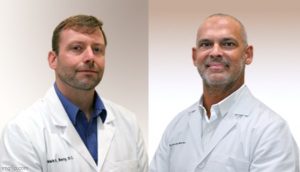Loss of Cervical Lordosis Causing Disc Herniation?

Cervical lordosis is a natural curvature of the spine that helps to support the weight of the head and neck. When this curve is lost, it can put stress on the discs in the spine, which can lead to disc herniation.
What is cervical lordosis?

Sunset Chiropractic and Wellness. Loss of Cervical Lordosis Causing Disc Herniation? Cervical lordosis is a natural curvature of the spine that occurs in the neck. It is caused by the alignment of the vertebrae in the neck, which are stacked on top of each other in a way that creates a curve. This curve helps to support the weight of the head and neck.
Cervical lordosis is a natural curvature of the spine that occurs in the neck. It is caused by the alignment of the vertebrae in the neck, which are stacked on top of each other in a way that creates a curve. This curve helps to support the weight of the head and neck.
What causes loss of cervical lordosis?
There are a number of things that can cause loss of cervical lordosis, including:
Poor posture: Poor posture can put stress on the muscles and ligaments in the neck, which can lead to the loss of cervical lordosis.
Sitting for long periods of time: Sitting for long periods of time can also put stress on the muscles and ligaments in the neck, which can lead to the loss of cervical lordosis.
Injuries to the neck: Injuries to the neck, such as a whiplash injury, can also cause the loss of cervical lordosis.
Degenerative disc disease: Degenerative disc disease is a condition that occurs when the discs in the spine become damaged. This damage can cause the discs to lose their height, which can lead to the loss of cervical lordosis.
What are the symptoms of disc herniation?
The symptoms of disc herniation can vary depending on the location of the herniated disc. However, some common symptoms include:
Neck pain: Neck pain is a common symptom of disc herniation. The pain can be sharp or dull, and it can radiate to the shoulders, arms, or hands.
Shoulder pain: Shoulder pain is another common symptom of disc herniation. The pain can be sharp or dull, and it can radiate to the neck, arms, or hands.
Arm pain: Arm pain is also a common symptom of disc herniation. The pain can be sharp or dull, and it can radiate to the shoulder, neck, or hands.
Numbness: Numbness in the arms or hands is a common symptom of disc herniation. The numbness can be caused by the pressure of the herniated disc on the nerves in the spine.
How is disc herniation diagnosed?

Sunset Chiropractic and Wellness. Loss of Cervical Lordosis Causing Disc Herniation? There are a number of things that can cause loss of cervical lordosis.
Disc herniation is diagnosed with a physical examination and imaging tests, such as an X-ray, MRI, or CT scan.
How is disc herniation treated?
Sunset Chiropractic & Wellness protocol has 3 major components to rehabilitate and improve the health of the spinal disc. These 3 treatment components work synergistically to rehabilitate the discopathy (spinal disc herniations and damage)
The first step to our spinal disc rehabilitation is the Flexibility and Hydration Procedures.
Depending on the specific patient exam, mri and xray findings the application of up to 8 different active and passive therapies are performed.The goal of these therapies are to decrease soft tissue resistance, increase hydration and nutrition to the avascular disc and increase spinal motion segmentally and globally. The flexibility and hydration procedures prepare the spine for the alignment and strengthen reeducation procedures.
The second step to our spinal disc rehabilitation is the Alignment Procedures.
Once the spinal disc are hydrated and the tissue resistance is decreased the spine is prepared for the alignments procedure determined from 41 measurements 23 angles on weight bearing x-rays. The doctor utilizes his hands, specialized instruments, and tables to shift the spine to a better alignment based off the x-ray measurements.
The third step to our spinal disc rehabilitation is the Strengthening and Reeducation Procedures. Once the spine is in a better configuration it needs to involuntarily hold these new positions. The application of a specialized form of neuromuscular reeducation and sensorimotor integration training is how this can be achieved.
The use of a specialized body weighting system helps rehabilitate the involuntary neurologic reflexes controlling the spinal configuration and strengthens the postural muscles to learn the new spinal positions. This will decrease abnormal loading of the disc, increase spinal flexibility, and decrease tight supporting tissues.
The clinic treatment combined with a patient specific home rehabilitation program can result in improved spinal structure alignment globally and segmentally that decreases abnormal spinal disc loading. This improved spinal alignment also improves the spinal motion globally and segmentally promoting better diffusion, imbibition, and osmosis improving disc health for the patient.
What are the risks of not treating disc herniation?
Not treating disc herniation can lead to a number of complications, including:
Permanent nerve damage: Permanent nerve damage can occur if the herniated disc puts pressure on the nerves in the spine. This can cause numbness, tingling, and pain in the arms or legs.
Severe neck pain: Severe neck pain can occur if the herniated disc puts pressure on the nerves in the spine. This can make it difficult to move the neck and can make it difficult to do everyday activities.

Sunset Chiropractic and Wellness. Loss of Cervical Lordosis Causing Disc Herniation? Disc herniation is diagnosed with a physical examination and imaging tests, such as an X-ray, MRI, or CT scan.
Kyphosis: Kyphosis is a condition that occurs when the spine curves forward. This can put stress on the discs in the spine and can lead to the loss of cervical lordosis.
Spondylolisthesis: Spondylolisthesis is a condition that occurs when one of the vertebrae in the spine slips forward. This can put stress on the discs in the spine and can lead to the loss of cervical lordosis.
If you have been experiencing spinal symptoms such as neck pain, back pain, headaches, migraines, mid back pain, rib pain, carpal tunnel, sciatica, disc herniations or protrusions, neuropathy, scoliosis, spinal stenosis, pain/numbness/weakness in your arms, hands, legs or feet……..
Call our office Today (305) 275-7474 for a Complimentary in clinic consultation or Phone, Whatsapp, or Zoom consultation so we can determine the cause of your symptoms, identify the damage, and design an individualized treatment plan to get back to enjoying the thing you love doing!
We look forward to meeting you and helping you recover your health. You can get better! We can help! There is still hope !
Dr. Rodolfo Alfonso, D.C.
Dr. Mark N. Berry, D.C.
Sunset Chiropractic and Wellness
8585 Sunset Dr.
STE 102
Miami, Florida 33143
305-275-7474



